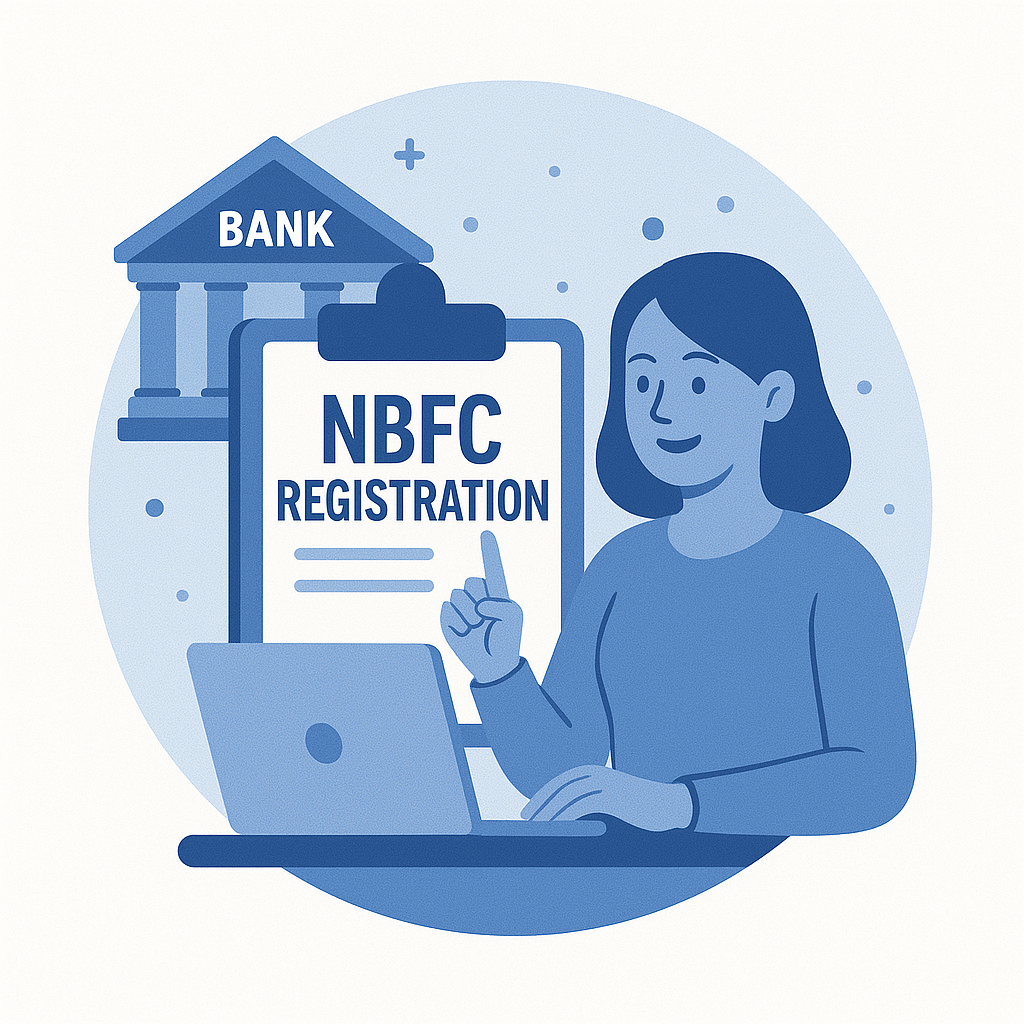
NBFC Registration
100% Foreign Direct Investment is allowed for NBFCs under the automatic route. YourLegalExpert helps with NBFC incorporation, RBI licensing procedures, documentation and post-licence compliances.
NBFC Registration
Overview
NBFCs (Non-Banking Financial Companies) are regulated by RBI and provide financial services like lending, asset financing, investment advice and money-changing. Registration with RBI is required for entities carrying on NBFC activities as defined under the Reserve Bank of India Act.
Functions & Activities
NBFCs may be engaged in activities such as merchant banking, underwriting, portfolio management, investment advisory, financial consultancy, stock broking, asset management, and various lending services. Specific activities and minimum capital requirements apply depending on the NBFC category.
Advantages of NBFC Registration
- Legal recognition to carry out regulated financial activities
- Access to wider underwriting and lending markets
- Ability to build financial product offerings with credibility
Pre-requisites & Checklist
RBI requires certain minimum capital, fit-and-proper promoters, board composition and statutory documents. Below is a concise checklist to get started.
- Certificate of Incorporation & MoA / AoA
- Board Resolution for commencement of NBFC business
- Proof of minimum net owned fund (as prescribed)
- KYC & Background documents for Directors / Promoters
- Projected Business Plan & Financial Projections
Types of NBFCs
NBFCs are classified into multiple categories based on activity and size.
Asset Finance Company
Funding physical assets such as automobiles, tractors and industrial machinery.
Investment Company
Deploys funds into securities and investments.
Loan Company
Provides loans and advances across consumer, personal and business segments.
Micro Finance Company
Provides micro loans to underserved segments.
Infrastructure Finance Company
Funds infrastructure projects & long-term assets.
100% FDI in NBFC
NBFCs may undertake a wide range of financial activities subject to compliance and minimum capital conditions.
NBFC License Cancellation Cases
RBI may cancel NBFC licences on grounds like insufficient financial resources, unsatisfactory business profile, capital arranged from prohibited sources, or discouraging NBFC operations.
Mandatory Compliances after obtaining NBFC License
- Register with Credit Rating Agencies (CIBIL, ICRA etc) where required
- File annual returns and financial statements with the ROC
- Maintain minimum capital & submit periodic reports to RBI
- Adopt fair practice code and IT policy where applicable
NBFC Annual Compliances
NBFCs must follow annual compliance timelines including annual returns with ROC, statutory audits and income tax/GST filings as relevant.
Penalty Provisions
Non-compliance with RBI conditions may attract penalties including fines and in severe cases, license cancellation.
Newly Proposed Scale-Based Approach to Regulation by RBI
RBI has proposed classification of NBFCs into layers such as Base Layer, Middle Layer, Upper Layer and Top Layer depending on size, interconnectedness and systemic importance. Each layer will have graduated regulatory requirements.
- Base Layer — smaller NBFCs with limited systemic impact.
- Middle Layer — NBFCs with larger balance sheets and more regulatory oversight.
- Upper/Top Layer — largest NBFCs with systemic implications and higher capital/ prudential requirements.
FAQs on NBFC Incorporation in India
Please reach us at contact@harshdeepnarula.in if you cannot find an answer to your question.
Yes, registration with the RBI is mandatory for entities carrying out NBFC activities as defined under the RBI Act. Specific exemptions may apply for certain activities.
An NBFC is a company that engages in financial activities like loans, advances, investments, asset financing among others and is subject to RBI regulations.
Certain entities performing small lending activities or non-core activities may be outside RBI perview; assessment on a case-by-case basis is necessary.
Yes, an existing company can apply if it satisfies prerequisites like net owned funds, fit-and-proper promoters and statutory documents.
Minimum net owned funds/capital requirements depend on the NBFC category and RBI notifications — typically prescribed thresholds must be met.
Fees include professional charges and statutory fees; contact us for a tailored quote based on scope and NBFC type.
Need help with NBFC registration?
We assist with application drafting, board resolutions, RBI submissions and ongoing compliances. Get in touch for a customised plan.